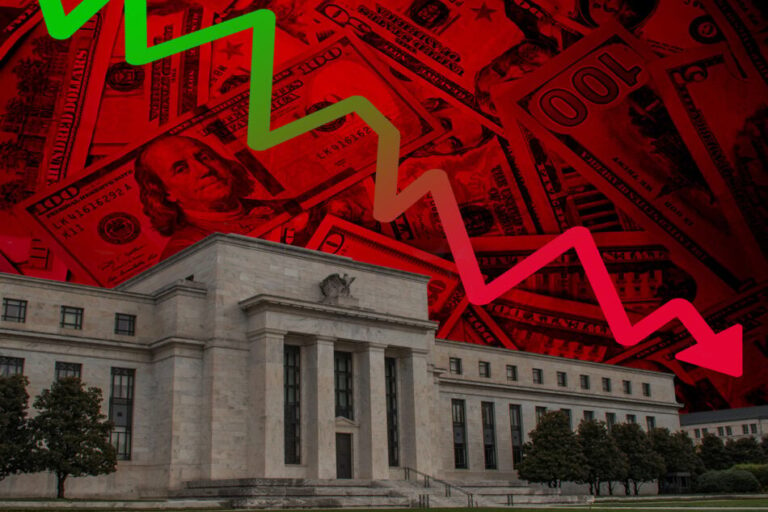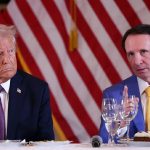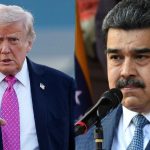During the presidential campaign, many people noted that a prospective Trump administration could trigger sustained upward pressure on inflation and interest rates if it tried to violate the Federal Reserve’s independent decision-making. This certainly seems to be happening now, as President Trump has made escalating threats to fire Fed Chair Jerome Powell for the sin of not doing exactly what Trump wants with interest rates. Preventing the political capture of Fed decision-making is the only thing standing in the way of the Trump administration seizing control of monetary policy and fueling higher inflation and interest rates for typical working families.
The Fed’s key job is to maintain macroeconomic stability, which means trying to ensure both unemployment rates and inflation are kept low. Often this involves some short-run trade-offs: There are times when a Fed that wanted unemployment to fall and didn’t care at all about inflation could lower interest rates dramatically. This would incentivize more borrowing and spending in the economy, boosting demand for goods and services. If all this happened with unemployment already relatively low, businesses would find it hard to assemble the inputs (including workers) needed to produce enough to satisfy this new demand—and inflation would follow. Conversely, if the Fed wanted to ensure that inflation remained low and didn’t care much about keeping unemployment low, it could keep interest rates high and tolerate too-high unemployment for extended periods to ensure demand never came close to outrunning the economy’s supply side.
The Fed has extraordinary levels of independence in making decisions about these trade-offs. They haven’t always gotten it right. I’d argue that for decades after the 1970s they acted like the caricature I drew above: They tolerated excess rates of unemployment in order to avoid any risk of rising inflation. This toleration of slack labor markets was a key driver of wage suppression in those decades.
For most of the 21st century, however, the Fed has placed an appropriately higher weight of importance on keeping unemployment low. They are an institution that is not rigid on macroeconomic management, and they react and change course relatively quickly when the evidence warrants it. These are incredibly valuable attributes for such an important economic policymaking institution in the U.S.—degrading their value by allowing a president to bully or micromanage the Fed’s decision-making would be a disaster for the U.S. economy, including typical workers and their families.
In the post-pandemic period of high inflation, many (including powerful politicians) urged the Fed to overreact and raise interest rates “until something broke” in a wild effort to contain inflation no matter what the cost in terms of higher unemployment. The Fed refused, still wanting to slow the economy to help bring inflation under control but also being properly protective about the huge benefits of very low unemployment in those years. The result was that the post-pandemic inflation episode was well-managed, with inflation falling even as unemployment remained low.
This “soft landing” would have been impossible if the Fed was not independent of political influence and not trusted to do their job of bringing inflation down. To put it more simply, nobody thought the Biden administration would hamper the Fed’s inflation-fighting job by threatening to fire Powell if he raised rates and risked the very low unemployment rates that prevailed at the time. Because nobody thought this, everybody was confident that inflation would indeed normalize as the Fed did what it needed to do. And this confidence that inflation would indeed normalize meant that workers were not building in expectations of spiraling inflation when they bargained for wages, and firms were not building in expectations of spiraling input costs as they made pricing decisions. In short, the Fed’s independence muffled—not amplified—the inflation burst of 2021–2022.
If Trump degrades confidence in the Fed’s political independence, any future inflation burst (say, one driven by a large increase in budget deficits) could well get embedded quickly into expectations, as workers and firms assume the Fed would not be effective in constraining inflation going forward. People will begin planning with inflation in mind and it could well begin accelerating. While lots of this bad dynamic would be kicked off by the Fed trying to keep the interest rates they control too low to constrain any inflationary burst, higher inflation expectations would start pushing up market-based interest rates like those for mortgages and auto loans. Lenders in credit markets know that inflation exists and if it begins rising, they will demand higher interest rates to account for it. This would lead to a future of permanently higher inflation and interest rates for things that matter to typical families.
To be clear, Fed independence does not just mean independence to slow the economy during periods of inflation. This independence also helps them ignore calls to tolerate crisis levels of unemployment. When congressional Republican majorities actively tried to throttle a robust recovery from the Great Recession, the Fed pushed in the opposite direction and stretched the policy envelope in efforts to bring unemployment back down to tolerable levels. They mostly failed, but only because the current tools they have for fighting recessions and spurring recovery are much weaker than the tools they have for slowing the economy.
Ironically, some of the names being floated to replace Jerome Powell in the event of a firing are people who savagely criticized the Fed for trying to bring down crisis levels of unemployment in the 2010s, even as inflation remained historically low. Given today’s still-low unemployment and above-target inflation, are these people being even louder about the Fed’s need to raise interest rates? They are not. Now that President Trump wants lower interest rates, these former critics have pivoted 180 degrees and have joined the chorus for cutting. They are, in short, unserious partisan hacks. And degrading the political independence of the Federal Reserve to appoint people like this would lead to a U.S. economy with higher inflation and interest rates in the long run. It would be yet another unnecessary self-inflicted economic wound from the Trump administration.
source: Economic Policy Institute




